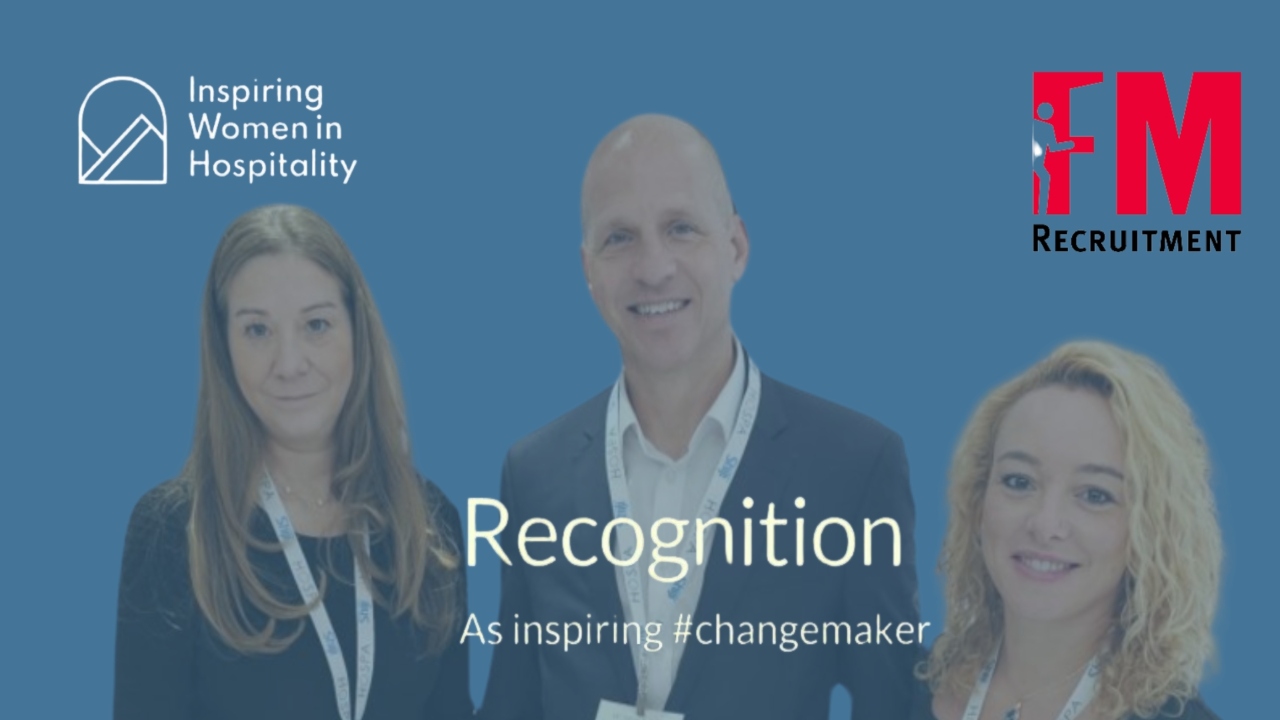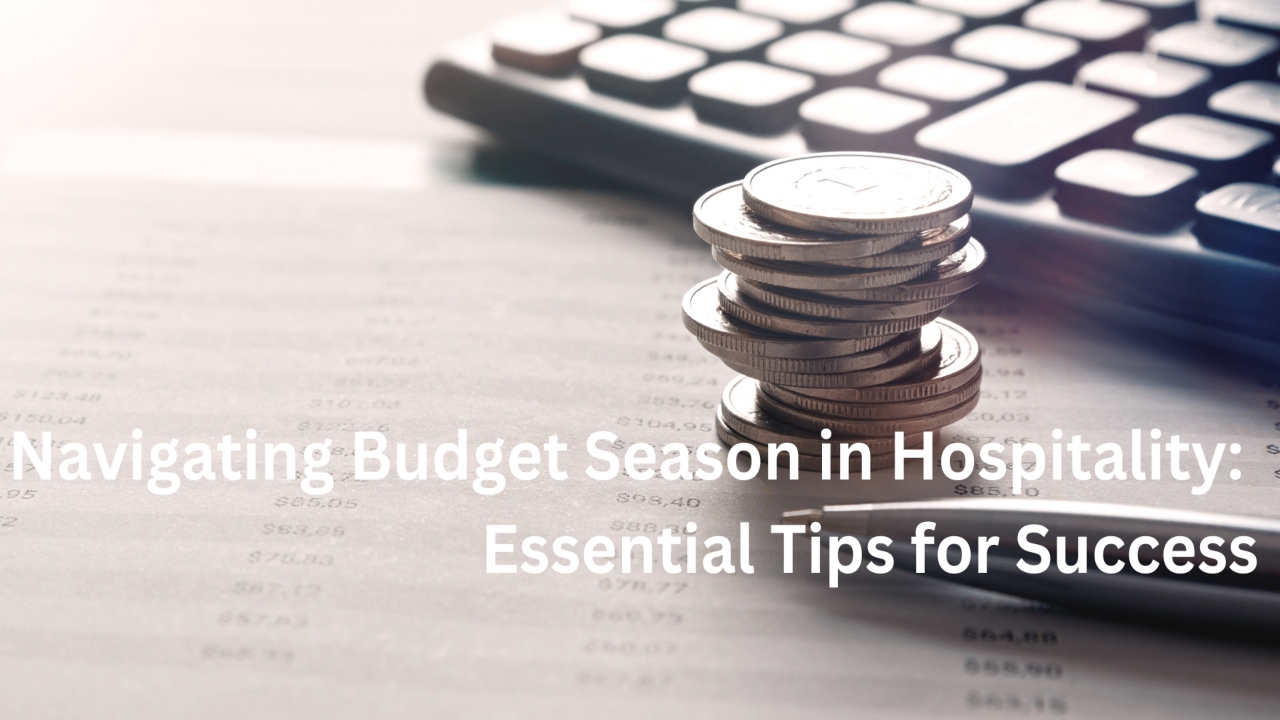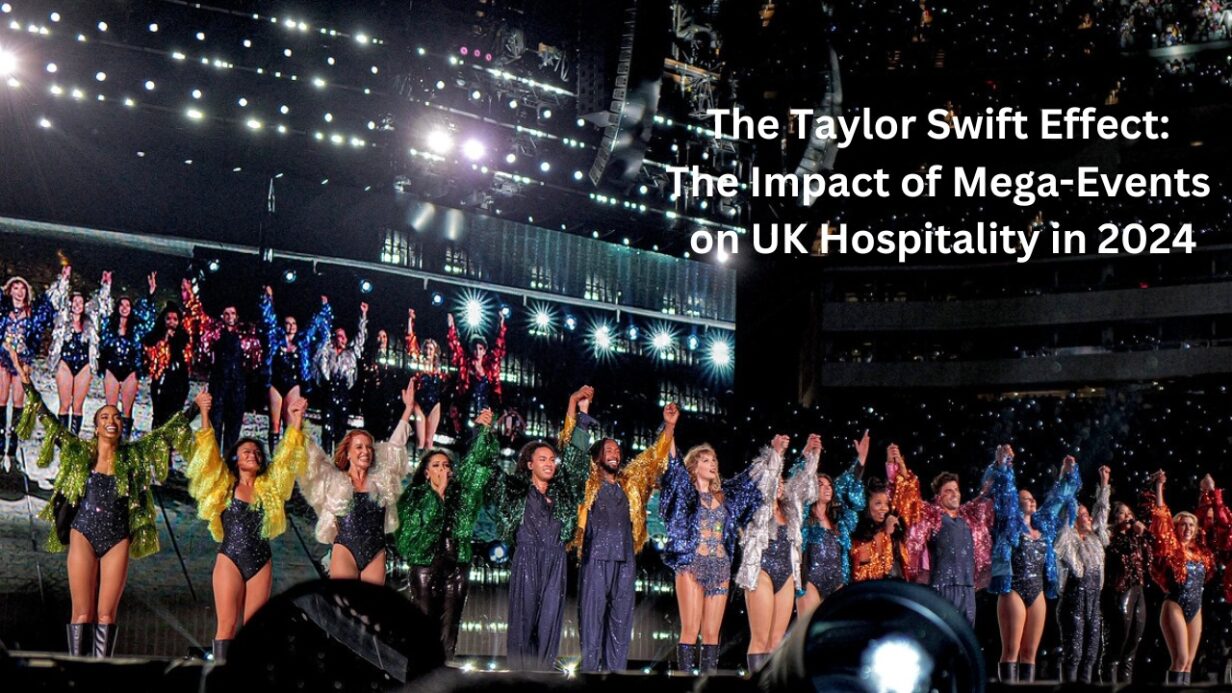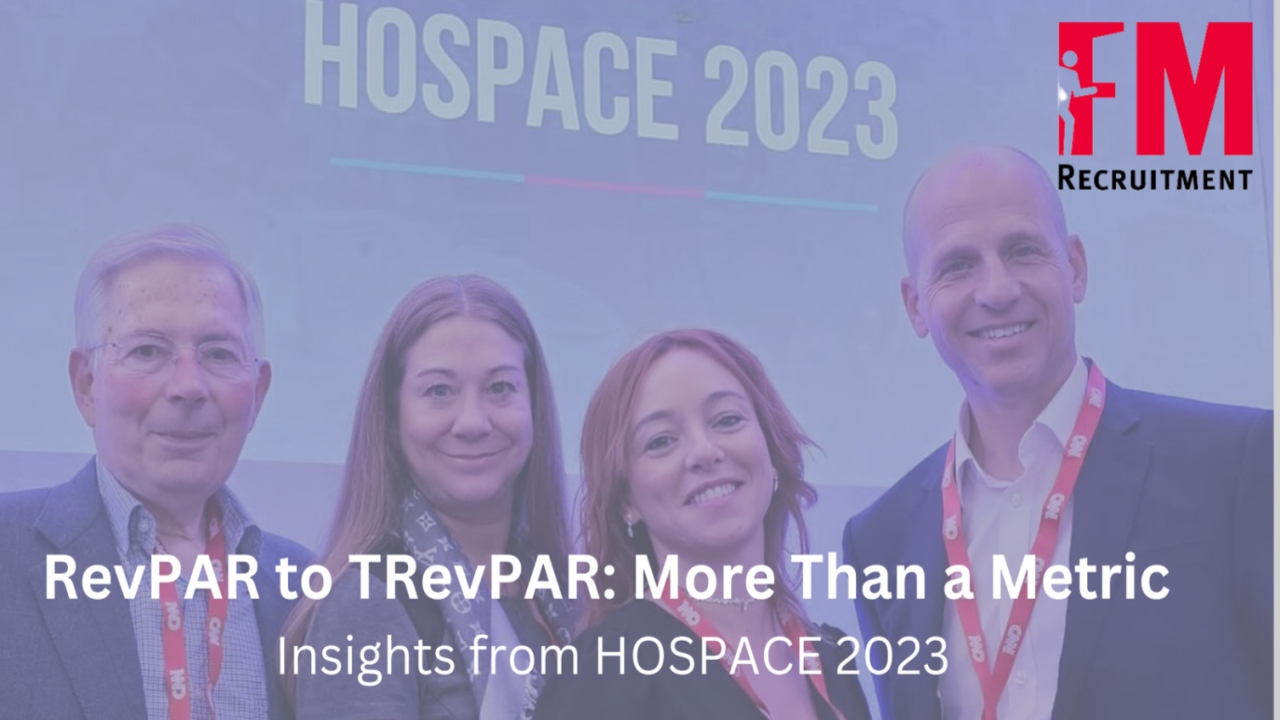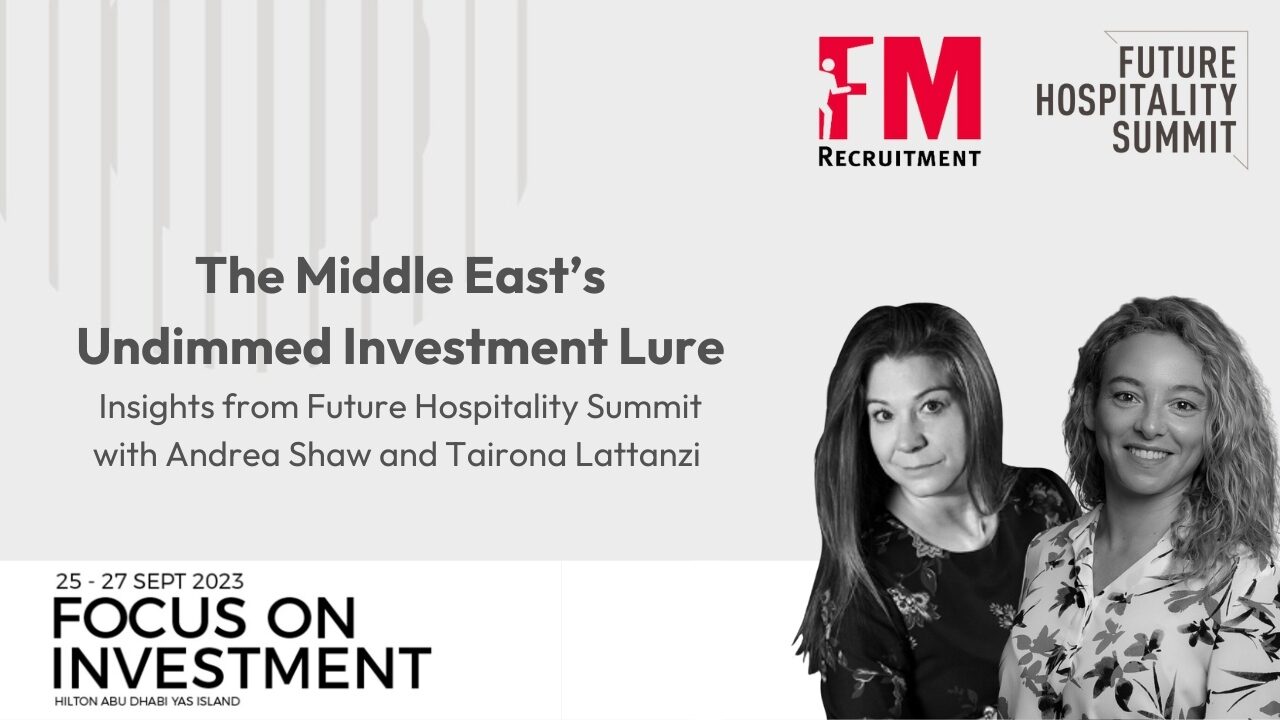Naureen Ahmed is a seasoned hospitality professional, a fervent community builder, an engaging storyteller, and the visionary founder of ‘Inspiring Women in Hospitality’.
With a life journey that saw her living in four different countries by the age of 10, Naureen’s path to the hospitality industry felt predestined. Her academic pursuits led her to the EHL Hospitality Business School in Lausanne, where she felt an immediate kinship with fellow students, each with their own unique stories.
Embarking on her career with a position at the Landmark London Hotel, Naureen quickly embraced the operational aspects of hospitality, setting the stage for a significant tenure at STR. Over 12 years, she transitioned through roles from analyst to head of departments, playing a pivotal role in transforming STR into the recognised brand it is today. Naureen’s leadership style is marked by inclusivity and a focus on building multicultural team environments.
Recognising the underrepresentation of women in hospitality, Naureen launched the ‘Inspiring Women in Hospitality’ podcast to amplify female voices and inspire change within the industry.
Her efforts expanded in September 2023 with the creation of the Inspire Community, a platform designed to foster support among women through mentorship and career development discussions.
Can you share a significant challenge you faced in your hospitality career and how you overcame it?
Advocating women’s empowerment is something I deeply care about. For me personally, one of my biggest challenges in the earlier years of my career was centred on speaking too quietly. The belief that hard work alone would get me noticed was a notion I held too closely, only to realise it was far from effective. I had to practise raising my voice, which felt like shouting to me, but it was the only way others could finally hear me.
It involved pushing myself out of my comfort zone, especially in meetings where I forced myself to speak up, to make sure I was noticed. I learned the hard way that visibility is crucial for career progression. Looking back, I see how I could have approached things differently, particularly in how I shared my achievements and successes during one-on-one meetings with my manager—a practice I really underestimated at the time.
The process of becoming more vocal and ensuring my voice was heard has become much more natural over time, but it still feels like a work in progress. It still takes time and practice, and it’s not about waiting for the perfect moment to feel ready. You just have to do it.
What inspired you to create the ‘Inspiring Women in Hospitality’ podcast, and what do you hope to achieve with it?
The inspiration for creating the ‘Inspiring Women in Hospitality’ podcast stemmed from my years at STR, where I was fortunate enough to interact with a diverse array of companies and individuals across the global hospitality industry.
Despite encountering many incredible women, I noticed a significant gap in visibility; the industry’s leadership was predominantly male. This observation sparked a real desire to amplify the stories of these women, to create a platform where our voices could be prominently heard and celebrated.
The concept for the podcast had been brewing since 2019, but it was the onset of the COVID-19 Pandemic, with all of us confined to our homes and all using Zoom, that helped bring this idea to life. It began as a passion project, but quickly evolved, and I’m about to do my 200th interview!
My goal was always to ensure that every story, regardless of the individual’s level of experience, is heard. I believe everyone has the capacity to inspire, and by sharing these diverse journeys, I hope to create a sense of community and connection.
The podcast aims to resonate with listeners, helping them see that they are not alone in their challenges and aspirations. Ultimately, I seek to foster a reflective space where we can pause, listen, and draw inspiration from one another.
With joy being a core value of yours, what have been the most fulfilling and joyful aspects of setting up the Inspire Community, and how do you ensure that this stays central to the values of the business?
Joy is at the heart of everything I do with the Inspire Community. The greatest joy comes from creating spaces where women can come together, share, and support each other, whether online or in person. It’s deeply fulfilling to facilitate these nurturing environments where open, judgement-free conversations allow us to celebrate our successes and navigate our challenges together.
Maintaining this atmosphere of joy, positivity, and communal uplift is fundamental. It’s about ensuring we progress as a community, fostering an inclusive space where everyone’s growth is intertwined with mutual support. This commitment to collective upliftment and optimism is what I continually aim to embed in the core values of the Inspire Community.
In your experience, how does the gender disparity in leadership roles within the hospitality industry impact the work environment and team dynamics?
I’ve been fortunate to work in environments where gender balance was more or less maintained, even finding myself in teams at STR where women outnumbered men. My teams have varied over the years, from being all men to a mix, and coincidentally, by the time I left it was a team of all women, not out of design but based on talent. Personally, my approach has always been to hire the best candidate, regardless of gender.
However, looking at wider research and insights, it’s clear that opportunities aren’t equally distributed between genders, with bias—often unconscious—playing a significant role. My aim is to raise awareness, educate, and challenge potentially biased decisions to ensure a more even distribution of opportunities.
An interesting statistic from my interviews is that 51% of the women I’ve spoken to have started their own businesses, choosing entrepreneurship over navigating the complexities of corporate work-life flexibility. This trend underscores a need for more inclusive conversations around work arrangements, not just for women but for all caregivers, encouraging a shift towards more flexible work environments for both parents.
In advocating for gender balance, it’s crucial to involve men in these conversations too. I’ve met many men in the industry who are strong advocates for gender balance. It’s important to engage with them, learn from each other, and work collectively towards uplifting everyone, finding solutions that benefit all, not just a select few.
How has your personal leadership style evolved as you’ve navigated through your career?
It’s a bit challenging to pinpoint this, but I’d say it comes down to two things. The first is that my leadership style is incredibly flexible, tailored to the person standing right in front of me. This realisation came from understanding that everyone I work with brings a different set of experiences, backgrounds, and motivations to the table, and my approach needs to adapt to meet those diverse needs.
The second, and perhaps the most pivotal shift in my leadership, has been recognising the role of empathy. For the longest time, I didn’t openly attribute my success in leadership to being empathetic. It wasn’t something that was traditionally highlighted as a key trait for leaders. But over time, I’ve come to see that empathy is what truly defines me as a leader. It’s allowed me to listen more intently, create a supportive space for my team, and understand their unique needs and motivations. This deep level of understanding has been crucial in helping each member of my team grow and develop in the direction they aspire to.
What are the most significant challenges that women face in the hospitality industry today, and how does your platform aim to address these issues?
We’ve all heard of the “old boys’ club” – a network that, frankly, doesn’t exist in the same form for women. At the same time, I’ve come across too many stories of women competing against each other due to the scarcity of leadership roles. This counterproductive mindset needs to change, and that’s where my platform steps in. We’re here to create a foundation for strong bonds and mutual support, to counteract these outdated dynamics.
The community we’re building is not just about making connections; it’s a space for learning from one another. Each month, we delve into topics aimed at career development, offering practical insights that members can apply directly.
Furthermore, recognising the gap in mentorship opportunities for women, we’ve initiated mentor matching to make these crucial relationships more accessible. It’s become clear to me that women often don’t have the same networking opportunities as men, especially those who juggle their careers with primary caregiving responsibilities. This limitation often restricts their ability to attend events and conferences, which are traditional networking avenues.
By creating this community, we’re breaking down the barriers to networking and mentorship. We’re addressing challenges like building your profile and networking, both of which are essential for career advancement. Yet, it’s not just about what we can do individually; organisations also play a crucial role. They need to cultivate more inclusive cultures where everyone feels comfortable speaking up and sharing their ideas. If the environment doesn’t support openness, progress for anyone is stifled.
This need for cultural change in the industry also ties into the broader issue of showcasing the diverse career paths within hospitality. Part of my motivation for the podcast was to highlight these opportunities, to show that there’s so much more to the industry than is commonly perceived.
Organisations need to do a better job of marketing themselves as desirable places to work, focusing not just on customer satisfaction but also on being employee-centric. It’s about making the industry attractive to potential talent, and addressing the labour shortages by showcasing the variety and richness of careers available in hospitality.
Looking ahead, what changes do you hope to see in the hospitality industry regarding gender balance and inclusion, and what role do you see the Inspire Community playing in this transformation?
While some organisations and regions, not just in hospitality, have adopted quotas as a means to ensure diversity across the board, I must admit, I’m not a big fan of quotas. However, I do believe in the power of starting conversations and taking a hard look at the existing data within organisations to understand where the gaps and patterns of exclusion are.
From my perspective, the focus should not solely be on recruitment but on nurturing and retaining the talent we already have, particularly women who have been invested in by their companies. It baffles me why any organisation would want to lose such valuable assets, especially considering the costs associated with hiring new employees versus retaining existing ones.
Flexibility in the workplace is another area ripe for innovation, extending beyond the option of remote work to include flexible hours, part-time roles, and job sharing. Moreover, the approach to parental leave needs a broader perspective, encouraging leaders, especially men, to lead by example by taking their full leave if it aligns with the company’s values, setting a precedent throughout the organisation.
As for the Inspire Community, I see it playing a crucial role in this transformation. Our community, predominantly composed of women in mid-career positions, represents the next generation of CEOs and industry leaders.
My vision is to prepare and propel these women into leadership roles by fostering a strong support network, increasing visibility, and encouraging them to be vocal and recognised for their contributions. We aim to ensure that these women are not just filling positions but are also on stage, leading discussions, and gaining the recognition they deserve.
The change starts with each of us, working together to create a more inclusive and balanced industry.
To discuss how we can support your businesses with your overall people strategy or to access our full suite of human capital services through Hospitality People Group, please get in touch on Tel: +44 20 8600 1180 or directly with team below:
Chris Denison Smith, Managing Director – FM Recruitment
+44 20 8600 1160 / +44 7775 711923
chrisdenisonsmith@fmrecruitment.co.uk
Dan Akhtar, Managing Director – HPG Advisory Services
+44 208 600 1166 / +44 7808 157796
dan@hpgsearch.com
Guy Lean, Managing Director – Madison Mayfair
+44 20 8 600 1180 / +44 7813 009787
guylean@madisonmayfair.com
Andrea Shaw, Director – FM Recruitment
+44 20 8 600 1160 / +44 7714 236469
andreashaw@fmrecruitment.co.uk
